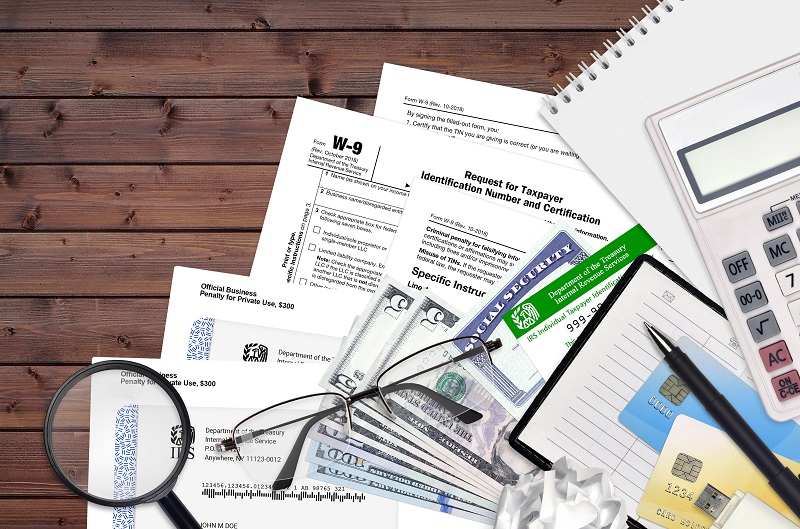Nevada has specific laws and regulations that govern credit repair businesses. If you’re considering starting a credit repair business in this state, it’s vital to understand the legal framework you’ll be operating within. This article will provide an overview of the laws and regulations that apply to credit repair businesses in Nevada.
Research and Understand Credit Repair Laws

Before starting your business, familiarize yourself with the Credit Repair Organizations Act (CROA) and Nevada state regulations that govern the credit repair industry. This includes Nevada Revised Statutes (NRS) Chapter 598, particularly NRS 598.741-598.787.
Federal Laws:
Credit Repair Organizations Act (CROA):
CROA is a federal law that governs the operation of credit repair businesses across the United States. It provides guidelines and restrictions on credit repair services, including prohibiting companies from making false claims about their services and requiring clear disclosures in contracts. CROA also mandates that credit repair companies cannot charge fees before services are rendered.
State Laws (Nevada):
Nevada Revised Statutes (NRS) Chapter 598:
This chapter contains various provisions related to trade practices and consumer protection, including regulations specific to credit repair businesses.
NRS 598.741-598.787
These sections outline the requirements for credit repair businesses operating in Nevada. Some key provisions include:
- NRS 598.747: Registration with the Nevada Attorney General’s office and payment of a registration fee.
- NRS 598.763: Obtaining a surety bond in the amount of $100,000, which must be filed with the Nevada Attorney General’s office.
- NRS 598.767: Prohibition of certain practices, such as making false statements or misrepresentations, engaging in fraud, or collecting fees before services are rendered.
- NRS 598.769: Requirement for a written contract between the credit repair business and the client, which must include specific information and disclosures.
- NRS 598.771: Right to cancel the contract within five days without penalty or obligation.
- NRS 598.775: Maintenance of client records for a minimum of two years.
These laws and regulations are designed to protect consumers and ensure that credit repair businesses operate ethically and transparently. Be sure to consult with a legal professional to ensure that your business is in compliance with all applicable laws and regulations.
Create a Business Plan

Develop a detailed business plan outlining your services, target market, pricing structure, and marketing strategy.
Market Research:
Begin by researching the credit repair industry in Nevada. Look at competitors, analyze their services, pricing, target audience, and marketing strategies. This will give you a good idea of the market and help you identify areas where you can differentiate your business.
Define Your Target Audience:
Determine your ideal customers and tailor your services and marketing efforts toward their needs. Your target audience may include individuals with poor credit scores, those who have recently experienced financial difficulties, or people looking to improve their credit for specific goals such as purchasing a home or car.
Services Offered:
Decide on the specific services you will offer, such as credit monitoring, dispute resolution, and credit counseling. Be sure to clearly define the scope of each service, so customers understand exactly what they are getting.
Marketing Plan:
Create a marketing plan that highlights your unique selling proposition, target audience, and budget for advertising and promotion. Include strategies such as SEO, content marketing, PPC advertising, and social media marketing.
Financial Plan:
Develop a financial plan that includes revenue projections, expense estimates, and funding requirements. Consider how much you will need to invest in software, staff, office space, and marketing, and determine how you will generate revenue.
Legal Compliance:
Ensure that you comply with all legal requirements in Nevada for operating a credit repair business, including any licensing and registration requirements.
Measure Success:
Identify key performance indicators (KPIs) such as the number of customers, revenue, and customer satisfaction rates. Establish regular reviews to analyze the data, measure progress, and identify areas for improvement.
By following these steps, you can create an effective business plan for a credit repair company in Nevada.
Register Your Business

Register your business with the Nevada Department of Business and Industry, Division of Mortgage Lending by choosing a business name, determining your business structure (LLC, corporation, etc.), and filing the necessary paperwork.
NRS 598.721 is a section within the Nevada Revised Statutes (NRS), specifically found in Chapter 598, which focuses on trade regulations and practices. NRS 598.721 is related to the regulation of credit services organizations.
Prior to engaging in or offering to perform or provide any activity of a credit service organization, § 721 of Chapter 598 of Nevada Revised Statutes, NRS 598.721, requires each person, not otherwise exempt from the provisions of the chapter, to apply for registration with the Division of Mortgage Lending as a credit service organization.
A credit service organization registration expires 1 year after it is issued and must be renewed annually.
To ensure that you and your company are appropriately registered and in compliance with the NRS, you are advised to review NRS 598.701 et seq. to determine your registration obligations.
Persons engaged in the business of a credit service organization are advised to complete and submit an Application for Registration and Business Practice Questionnaire.
Visit the Nevada Division of Mortgage Lending website.
Obtain an EIN

Apply for an Employer Identification Number (EIN) from the Internal Revenue Service (IRS).
Determine If You Need an EIN:
An EIN is required for businesses with employees, as well as for certain types of businesses such as corporations, partnerships, and LLCs. If you are unsure if you need an EIN, you can check the IRS website or consult with a tax professional.
Obtain the Necessary Information:
Before you begin the application process, gather the necessary information such as your legal name, business name, business structure, and business address.
Complete the Application:
You can apply for an EIN online, by mail, or by fax. The online application is the fastest and easiest method. To apply online, go to the IRS website and click on the “Apply for an EIN Online” link. Follow the prompts and provide the necessary information. Once the application is complete, you will receive your EIN immediately.
Apply By Mail or Fax:
If you prefer to apply by mail or fax, you can download Form SS-4 from the IRS website and complete it manually. Once you have completed the form, you can submit it by mail or fax to the appropriate IRS office. The processing time for these methods is longer than for online applications.
Use Your EIN:
Once you have obtained your EIN, you can use it to open a bank account, file tax returns, and complete other business-related activities.
Open a Business Bank Account

Open a separate bank account for your credit repair business to keep your personal and business finances separate.
To open a business bank account in Nevada for a credit repair business, follow these steps:
Choose a Bank:
Research banks in Nevada that offer business checking accounts and compare their fees, account features, and other benefits. Look for a bank that meets your specific needs and offers competitive rates.
Gather Required Documents:
Before opening a business bank account, you will need to provide the bank with certain documents, including your business registration documents, your Employer Identification Number (EIN) from the IRS, and your personal identification documents such as a driver’s license or passport.
Schedule an Appointment:
Contact the bank and schedule an appointment to open a business checking account. This will ensure that you have sufficient time to complete the necessary paperwork and discuss any questions or concerns with a bank representative.
Complete the Application:
During the appointment, you will need to complete an application for a business checking account. Provide all necessary information, including your business name, legal structure, and address. Be sure to also provide the required documents mentioned earlier.
Fund the Account:
Once your application is approved, you can fund your account by making a deposit. The bank representative can assist you with this process.
Set Up Online Banking:
Once your account is set up, you can enroll in online banking services to manage your account, pay bills, and perform other transactions online.
Obtain Any Required Licenses and Permits

Depending on your business structure and the services you plan to offer; you may need to obtain licenses or permits at the state and local levels. Check with the Nevada Department of Business and Industry and your local city or county government for specific requirements.
Here are some of the licenses and permits that may be required for a credit repair business in Nevada:
Business License:
All businesses in Nevada are required to obtain a business license from the county or city where the business is located. You can obtain a business license by contacting the city or county clerk’s office where you plan to operate your business.
State Business License:
If your credit repair business is a corporation or LLC, you may also need to obtain a state business license from the Nevada Secretary of State.
Bond:
Credit repair businesses in Nevada are required to obtain a surety bond to ensure compliance with state laws and regulations. The amount of the bond may vary depending on the business’s specific activities.
Sales Tax Permit:
If your credit repair business sells products or services subject to sales tax, you must obtain a sales tax permit from the Nevada Department of Taxation.
Federal Licenses:
Depending on the nature of your credit repair business, you may need to obtain a federal license or permit. For example, if your business will handle consumer credit reports, you may need to obtain a license from the Consumer Financial Protection Bureau.
Obtain a Bond

According to NRS 598.763, a credit repair company must obtain a surety bond in the amount of $100,000.
According to NRS 598.763, the surety bond must:
- Be in the amount of $100,000.
- Be issued by a surety company authorized to do business in Nevada.
- Be in favor of the State of Nevada for the benefit of any person who is injured by any violation of NRS 598.741 to 598.787 (sections that pertain to the regulation of credit services organizations).
- Provide that the bond may not be terminated unless written notice is given to the Attorney General at least 30 days before the termination date.
The bond serves as a form of protection for consumers who may be harmed by a credit services organization’s violation of the relevant statutes.
Develop Contracts and Disclosures

Prepare client contracts that comply with state and federal laws, including required disclosures and cancellation rights. Consider consulting with a legal professional to ensure your contracts are compliant.
Contract for Services:
Credit repair businesses must provide clients with a written contract that outlines the services to be provided, the fees to be charged, and the terms and conditions of the contract. The contract must also include a statement that the client has the right to cancel the contract within three days of signing.
Disclosure of Consumer Rights:
Credit repair businesses must provide clients with a written disclosure that outlines their rights under state and federal law. The disclosure must include information about the client’s right to dispute inaccurate information on their credit report and the client’s right to sue credit reporting agencies for violations of their rights.
Notice of Cancellation Rights:
Credit repair businesses must provide clients with a notice of their right to cancel the contract within three days of signing. The notice must include instructions on how to cancel the contract and the deadline for doing so.
Prohibition on Advance Fees:
Credit repair businesses are prohibited from charging client’s advance fees for credit repair services. The business may only charge fees after the services have been performed.
Prohibition on Misrepresentations:
Credit repair businesses are prohibited from making false or misleading statements to clients. This includes statements about the effectiveness of their services, the time it will take to repair credit, and the results that can be achieved.
Create a Website and Marketing Materials

Develop a professional website and marketing materials to promote your credit repair services.
Define Your Brand:
Establish a clear brand identity that represents your business values, mission, and unique selling proposition. Choose a name, logo, and design elements that convey your message and appeal to your target audience.
Choose a Domain Name:
Select a domain name that is easy to remember, represents your business name or services, and is available for purchase. You can use domain registration services such as GoDaddy or Namecheap to search and purchase domain names.
Build a Website:
Develop a website that is professional, user-friendly, and mobile-responsive. Use website builders such as WordPress, Wix, or Squarespace to create a custom website or hire a professional web designer to build a website for you. Ensure that your website includes clear and concise information about your services, pricing, and contact details.
Develop Marketing Materials:
Create marketing materials such as brochures, flyers, business cards, and social media graphics that align with your brand and website design. Use attention-grabbing headlines, persuasive copy, and high-quality images to promote your services and attract customers.
Optimize for Search Engines:
Optimize your website and marketing materials for search engines such as Google. Use relevant keywords, meta descriptions, and alt tags to improve your search engine rankings and drive traffic to your website.
Leverage Social Media:
Use social media platforms such as Facebook, Twitter, and LinkedIn to connect with potential customers, share information about your services, and build brand awareness. Use social media scheduling tools such as Hootsuite or Buffer to save time and streamline your social media marketing efforts.
Measure and Analyze Results:
Use web analytics tools such as Google Analytics to track your website traffic, user behavior, and conversion rates. Measure the effectiveness of your marketing materials and adjust your strategies as needed.
Set Up a Record-Keeping System

Implement a system for organizing and maintaining client files and financial records to ensure compliance with state and federal regulations.
Determine What Records to Keep:
Determine the types of records that need to be kept, such as client files, financial records, and tax records. This may include credit reports, contracts, receipts, invoices, bank statements, and other relevant documents.
Create a Filing System:
Establish a filing system that organizes records by category, date, and type of document. Use labels, folders, and color-coding to make it easy to locate and access records.
Use Cloud-Based Storage:
Consider using cloud-based storage solutions such as Dropbox, Google Drive, or OneDrive to store and access records remotely. This makes it easier to share files with team members and clients, and provides a backup in case of data loss.
Use Accounting Software:
Use accounting software such as QuickBooks or Xero to track financial transactions, create invoices, and manage expenses. This will simplify the process of recording and organizing financial records and help you prepare for tax filing.
Establish a Retention Policy:
Develop a retention policy that outlines how long different types of records should be kept. This will help you stay compliant with state and federal regulations and avoid cluttering your storage with unnecessary records.
Regularly Review and Update Records:
Review and update records regularly to ensure that they are accurate and up-to-date. This will help you avoid errors and make informed business decisions.
Stay Current on Laws and Regulations

Keep yourself informed about changes in the credit repair industry, as well as state and federal regulations, to ensure ongoing compliance with the law.
Join Industry Associations:
Join industry associations such as the National Association of Credit Services Organizations (NACSO) and the National Association of Consumer Advocates (NACA) to stay informed about industry developments and regulatory changes.
Follow Regulatory Agencies:
Follow regulatory agencies such as the Consumer Financial Protection Bureau (CFPB), the Federal Trade Commission (FTC), and the Nevada Department of Business and Industry (DBI) to stay up-to-date on state and federal laws and regulations.
Read Industry Publications:
Read industry publications such as Credit Repair Cloud and Credit Repair Business News to stay informed about trends, best practices, and regulatory changes in the credit repair industry.
Attend Conferences and Seminars:
Attend conferences and seminars such as the Credit Repair Expo and the Credit Repair Summit to learn about industry trends, new products and services, and regulatory changes.
Consult with Legal Professionals:
Consult with legal professionals such as attorneys and compliance consultants to ensure that your credit repair business is in compliance with state and federal laws and regulations.
Train Staff on Compliance:
Train your staff on compliance requirements and best practices to ensure that your business is operating in compliance with state and federal laws and regulations.
Ready to start your credit repair business in Nevada?
Make sure you are informed and compliant with the latest state laws.
Click now to learn more.
As you can see, there are specific legal requirements that credit repair businesses in Nevada must meet. By understanding these laws and regulations, you can operate your business with confidence and ensure that you’re providing valuable services to your clients.
Bonus: Now that you have read this article, why not take your new skill and start your own credit business helping others? We have free training that can help you do just that.

